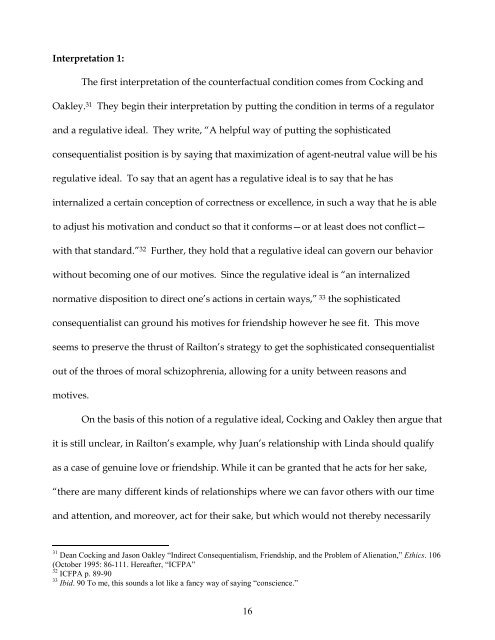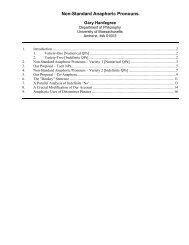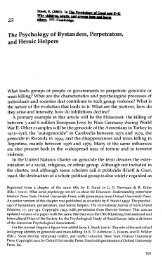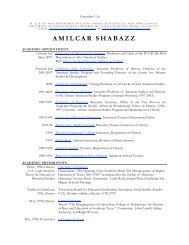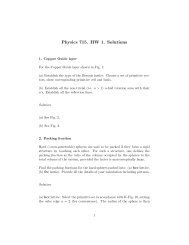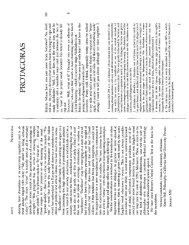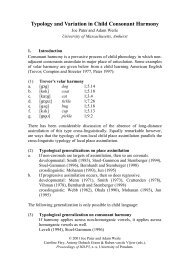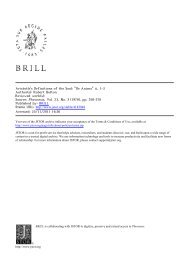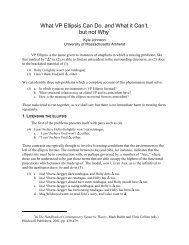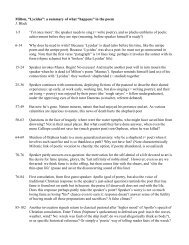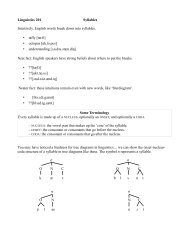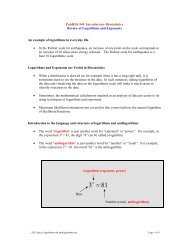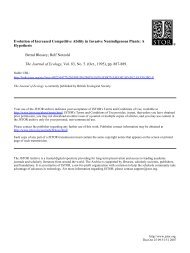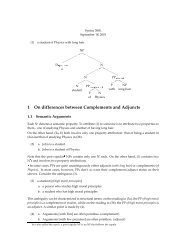1 Confessions of a Moral Schizophrenic* By Jayme Johnson I ...
1 Confessions of a Moral Schizophrenic* By Jayme Johnson I ...
1 Confessions of a Moral Schizophrenic* By Jayme Johnson I ...
Create successful ePaper yourself
Turn your PDF publications into a flip-book with our unique Google optimized e-Paper software.
Interpretation 1:<br />
The first interpretation <strong>of</strong> the counterfactual condition comes from Cocking and<br />
Oakley. 31 They begin their interpretation by putting the condition in terms <strong>of</strong> a regulator<br />
and a regulative ideal. They write, “A helpful way <strong>of</strong> putting the sophisticated<br />
consequentialist position is by saying that maximization <strong>of</strong> agent-neutral value will be his<br />
regulative ideal. To say that an agent has a regulative ideal is to say that he has<br />
internalized a certain conception <strong>of</strong> correctness or excellence, in such a way that he is able<br />
to adjust his motivation and conduct so that it conforms—or at least does not conflict—<br />
with that standard.” 32 Further, they hold that a regulative ideal can govern our behavior<br />
without becoming one <strong>of</strong> our motives. Since the regulative ideal is “an internalized<br />
normative disposition to direct one’s actions in certain ways,” 33 the sophisticated<br />
consequentialist can ground his motives for friendship however he see fit. This move<br />
seems to preserve the thrust <strong>of</strong> Railton’s strategy to get the sophisticated consequentialist<br />
out <strong>of</strong> the throes <strong>of</strong> moral schizophrenia, allowing for a unity between reasons and<br />
motives.<br />
On the basis <strong>of</strong> this notion <strong>of</strong> a regulative ideal, Cocking and Oakley then argue that<br />
it is still unclear, in Railton’s example, why Juan’s relationship with Linda should qualify<br />
as a case <strong>of</strong> genuine love or friendship. While it can be granted that he acts for her sake,<br />
“there are many different kinds <strong>of</strong> relationships where we can favor others with our time<br />
and attention, and moreover, act for their sake, but which would not thereby necessarily<br />
31 Dean Cocking and Jason Oakley “Indirect Consequentialism, Friendship, and the Problem <strong>of</strong> Alienation,” Ethics. 106<br />
(October 1995: 86-111. Hereafter, “ICFPA”<br />
32 ICFPA p. 89-90<br />
33 Ibid. 90 To me, this sounds a lot like a fancy way <strong>of</strong> saying “conscience.”<br />
16


